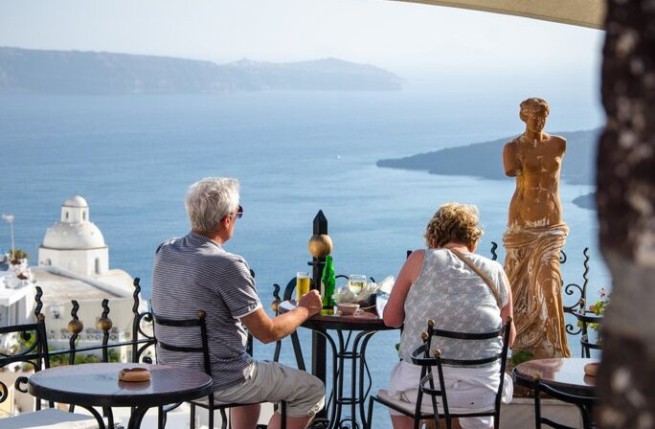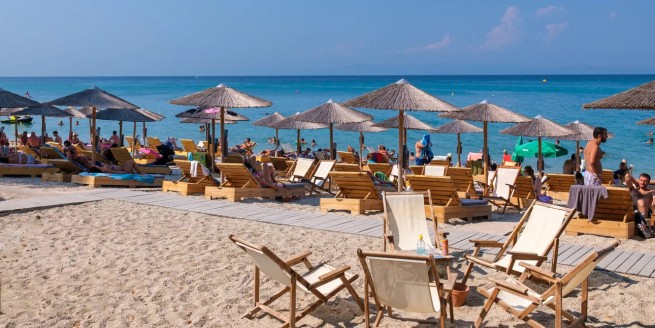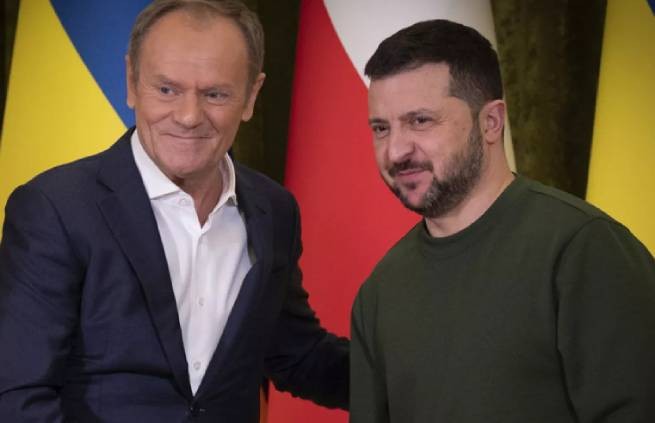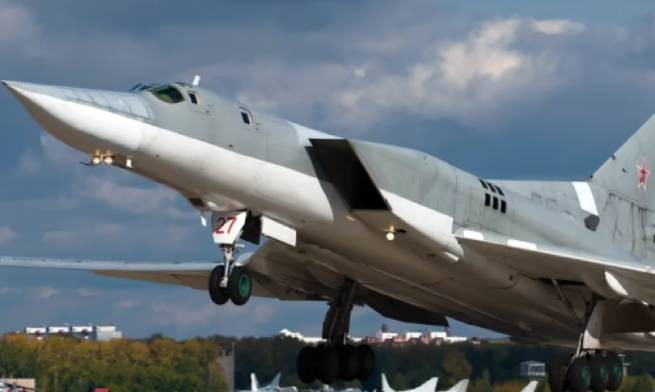On March 25, Greece celebrates the 200th anniversary of the beginning of the national liberation struggle, which ultimately ended the centuries-old Ottoman rule.
On the role of Russia in gaining independence by the Greeks, as well as on modern relations between our countries in interview to “Parliamentary newspaper” told the Ambassador Extraordinary and Plenipotentiary of the Russian Federation to the Hellenic Republic Andrey Maslov.
– Andrei Mikhailovich, what is the role of Russia in gaining independence by the Greeks?
– The decisive role of our country in the success of the Greek national liberation struggle of 1821-1829 is recognized by both domestic and Greek historians. In Russian society, which has long been associated with Greece, for many generations, sympathy and a sense of belonging to the fate of the people of the same faith have invariably dominated. This was also typical of enlightened Russians who received a classical education. It was from this environment that many philhellene emerged. Therefore, it is not surprising that the freedom-loving aspirations of the Greeks were received with enthusiasm in Russia.
Long before the Revolution of 1821 itself, the Russian Empire took steps that created the preconditions for the beginning of the liberation struggle of the Greek people. The path to national independence of Greece was largely predetermined by the success of the First Archipelago Expedition of the Russian Imperial Navy in the Aegean Sea in 1770-1774, led by Count Alexei Orlov, as a result of which the Greeks acquired their own fleet and began free trade operations in the Mediterranean under the Russian flag. An important milestone was the glorious victories of the Mediterranean squadron of Admiral Fyodor Ushakov in the campaign of 1798-1800, which ensured the creation of the first prototype of the Greek state after the fall of Constantinople in 1453 – the Republic of the Seven Islands. All this laid the foundation for the subsequent liberation struggle, which also became victorious largely thanks to the help of Russian diplomacy and weapons.
By the way, domestic philhellenes were also inspired by the example of the Greeks who served in the Russian army. Such as the head of the secret Greek revolutionary organization “Filiki Eteria”, General of the Russian army Alexander Ipsilanti, the commander of the Greek infantry regiment in the Crimea Lambros Katsonis and others. Many have tied their fate and life with Greece, for example, the Russian officer Nikolai Raiko – the first military commandant of the large port city of Patras, an associate of the head of the Ministry of Foreign Affairs of the Russian Empire and later the first ruler of independent Greece, John Kapodistrias. The response of Russian poets who praised the liberation movement was significant. The great Pushkin also dedicated his lines to him.
The actions of the Russian fleet and army were of decisive importance. Our ships as part of the combined Russian-British-French squadron took the brunt of the battle in the Battle of Navarino on October 20, 1827, the victory in which opened the way for the final establishment of Greece as an independent power. In turn, the successes of our troops in the Russian-Turkish war of 1828-1829 forced Porto to officially recognize Greece. I would like to especially emphasize that it was thanks to the persistence of Russia that the territory of the new Greek state was not limited to the Peloponnese peninsula, as some powers wanted, but turned out to be much larger.
– How do the inhabitants of modern Greece perceive the historical contribution of Russia to the liberation of Greece?
– Russian-Greek relations have always been friendly and mutually respectful. They are based on the spiritual and cultural closeness of our peoples, the chronology of ties between which dates back a millennium. Are there many such examples in the world of such a close intertwining of historical destinies? This foundation, as Russian Foreign Minister Sergei Lavrov said, is not subject to erosion and is not subject to external pressure.
Most Greeks associate it with Russia that their homeland gained independence and the formation of a modern Greek state.
The liberation of Greece from Ottoman rule is one of the most glorious pages in our common history. Most Greeks associate it with Russia that their homeland gained independence and the formation of a modern Greek state. This is evidenced by the sociological polls conducted here.
Here they carefully treat the memory of the exploits of Russian soldiers who fell for the freedom of the Greeks. Here are just a few examples. Local authorities always invite Russia to take part in the annual October celebrations in Pylos on the Peloponnese to commemorate the triumphant victory in the Battle of Navarino. An important element of the program is the entry of a Russian Navy ship there. On the island of Sfaktiria in the bay of Pylos, there is a mass grave of Russian sailors and a wooden chapel built in the traditional Russian style. There is also a monument to the Russian philhellines who joined the struggle of the Greeks in the Greek city of Mesolonghi. A bust of Raiko is planned to be opened in Patras this year. Other actions are being worked out to perpetuate the memory of our soldiers.
Aivazovsky I. K. “Sea battle at Navarino”
We are grateful to the Greek authorities and the public for their respectful attitude towards the common pages of history.
– How would you describe the current level of interaction between our countries?
– Russian-Greek relations are developing progressively, our cooperation covers a variety of areas. A regular and intensive political dialogue is being maintained. In 2020, two personal meetings and a series of telephone conversations between Sergei Lavrov and his Greek counterpart Nikos Dendias took place. Russian Prime Minister Mikhail Mishustin, who also held talks with Greek Prime Minister Kyriakos Mitsotakis, is visiting Athens to participate in the anniversary events on March 24-25 on the occasion of the 200th anniversary of the start of the national liberation struggle in Greece. Other high-level visits are also planned for this year.
Greece is our solid trading partner. Russia is a key supplier of energy resources to the local market. Thus, we cover 45 percent of Greece’s natural gas needs. The largest foreign project, which received the status of a “strategic investment” from the Greek government, was the construction by Russian business of a hotel complex on the island of Crete worth over 400 million euros. Other investment plans are also being implemented. Greece is also a traditional and favorite tourist destination for hundreds of thousands of Russians.
Cultural and humanitarian cooperation takes a special place. This year has been declared the Year of Russia-Greece History. It has become the fourth consecutive large-scale joint thematic project after the Cross Year in 2016, the Year of Tourism in 2017-2018 and the Year of Language and Literature in 2019-2020. The program of this initiative, which has received the patronage of the President of Russia and the Prime Minister of Greece, will include more than a hundred outstanding events in both countries, many of them in the regions. Planned, among other things, are the filming of fiction and documentaries, educational expeditions to places of common military glory, exhibitions of paintings and historical relics, scientific conferences, translations and publication of books, concerts, memorial ceremonies and much more. We expect new calls of the Russian Navy ships to the ports of Greece, timed to coincide with memorable dates. We hope that the epidemiological situation in Russia and Greece will make it possible to implement all these plans.






More Stories
4 scenarios for the development of the war in Ukraine
There was a scandal in Cyprus over the Prime Minister's plane, donated by K. Mitsotakis
Nuclear wrestling between the USA and Russia: are we heading towards the use of strategic weapons?